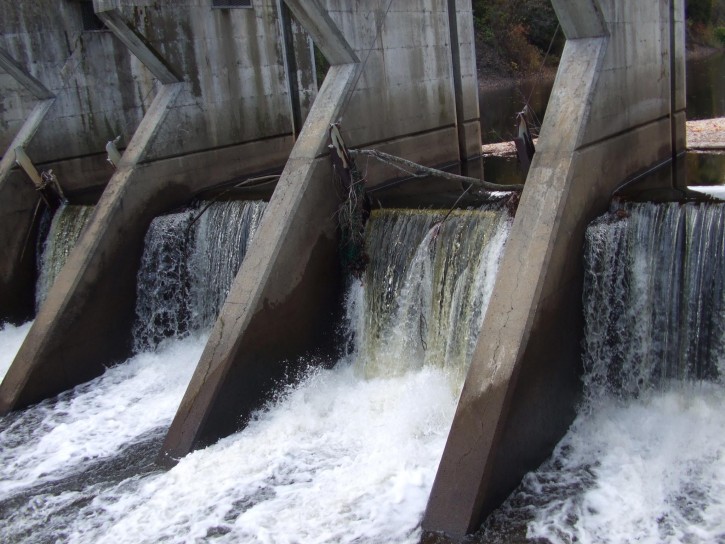
By Natalie Wyatt
What does a developing country with rapidly growing industries do? Well, in the case of a country like China, they look for markets abroad, and more specifically, African markets. Increasingly in the past decade, China has looked at ways to provide investments and infrastructure to Africa’s growing sustainable energy industry, whether that be in solar power and, now more recently, hydropower. Hydropower is considered by many leading scholars and economists to be the energy source that is not only the most readily available for many African nations situated on massive rivers like the Nile, Niger, or Congo but also one of the most cost-effective methods of creating quick energy for such nations. However, utilizing hydropower, no matter how good an idea, ultimately takes two things: technical knowledge and a lot of initial investment. Increasingly the Chinese government has made deals with various African energy companies to sell cheap materials and services to build these massive dams as quickly as possible.

In the past year, China’s state-owned Development Bank Corp. has increased its budget for investments in Africa from 1 billion to a whopping 5 billion, making clear the nation’s desire to enter African markets. In order to sustain the quick growth of sectors like China’s sustainable energy industry, such companies need to grow at a certain percentage rate annually and are finding many eager customers in Africa to whom they can sell solar panels, photovoltaic panels, and now materials to build dams that can harness hydropower. On the surface China’s offer looks good: a large amount of invested capital, cheap prices, and technological knowledge brought with what one Bloomberg Business writer describes as, “few strings attached.” China’s government gives investments without the strict parameters that the United States and many European countries have implemented to protect western countries from taking part in projects that harm local people or the environment.
At this point, there are many advocates for hydropower to be used in Africa to respond to the continent’s energy deficit. Dams have the capacity to provide electricity to remote villages, as well as increase irrigation for agriculture. Such dams can even earn money for the nation through the exportation of electricity. China is presently involved in the creation of major dams throughout the continent: from Sudan, to Zambia, to Congo. Zesco, a large utility company in Zambia began work on a dam a decade ago by partnering with Sinohydro, a major Chinese hydropower company. However, such partnerships have raised questions about China’s “no strings attached” policy.
In the case of the Sudan, China’s involvement in dam construction has been marred with controversy. The Merowe Dam, on a cataract of the Nile, is easily one of the country’s most lucrative hydropower projects. However, in China’s and Sudan’s rush to build the dam, no assessment of environmental impact was made. Although part of China’s laissez-faire partnership policy means that results can be quick and astonishing, the question is: at what cost? In the case of Sudan, around 50,000 people were displaced in order to build a reservoir for the dam. These people were forced to move to much more arid portions of the country that make farming considerably more challenging. Arid African countries like Sudan have very little fecund agricultural land, most of which is around the upper Nile valley. China’s willingness to utilize Nile hydropower at all costs has turned out to cause massive human rights’ violations.

The debate over whether China’s influence in Africa is neocolonial or simply a symbiotic partnership is ultimately an incredibly complicated debate for the reasons the example of hydropower shows. On the one hand, the impact positive hydropower projects have on African nations is undeniable. For a country like Nigeria, the most populous nation on the continent, gaining a massive hydroelectric dam like Mambila dam, a Chinese project, could have the potential to double the country’s energy capacity. However, in the past the more long-lasting influences of disregarding the needs of the local people for the sake of profit has given African nations more problems than solutions. A clear example of this can be seen in American and European involvement in the Southern African mining industry, in which nations forced mass migrations of African people in order to provide labor for the mines.
Although, on the surface, China appears to have a hands-off attitude towards its African partners in the hydropower industry, ultimately the nation’s lack of concern for human rights and environmental violations should be a major concern. African nations certainly should explore hydropower as a viable energy option in the future, but hopefully there will be opportunities for those nations to do that without compromising the long-term autonomy and preservation of human rights that is necessary for these nations to continue to develop. Such concerns may seem like first world problems pushed on nations’ that simply need sustainable energy. However, as Africa’s neocolonial history shows, the results of that compromise for the sake of immediate profit can cripple a nation for decades to come.
Natalie Wyatt ’18 is in Davenport College. Contact her at natalie.wyatt@yale.edu.